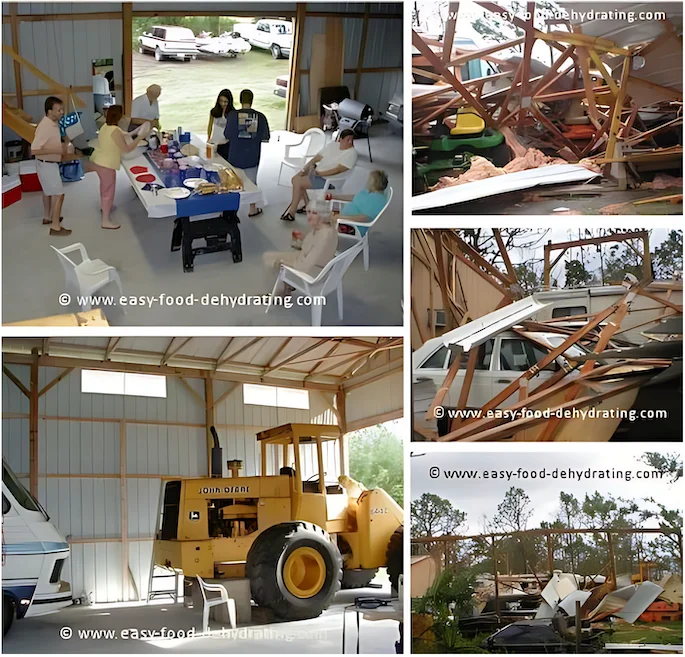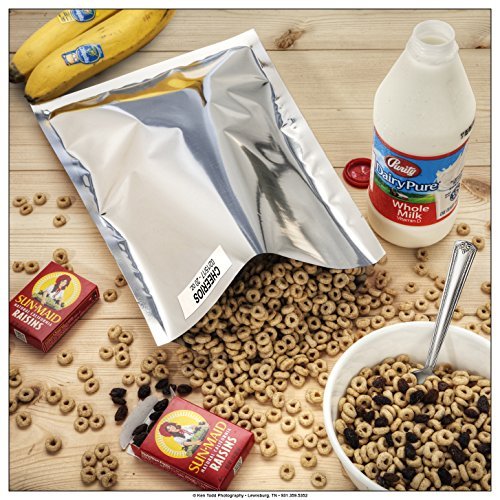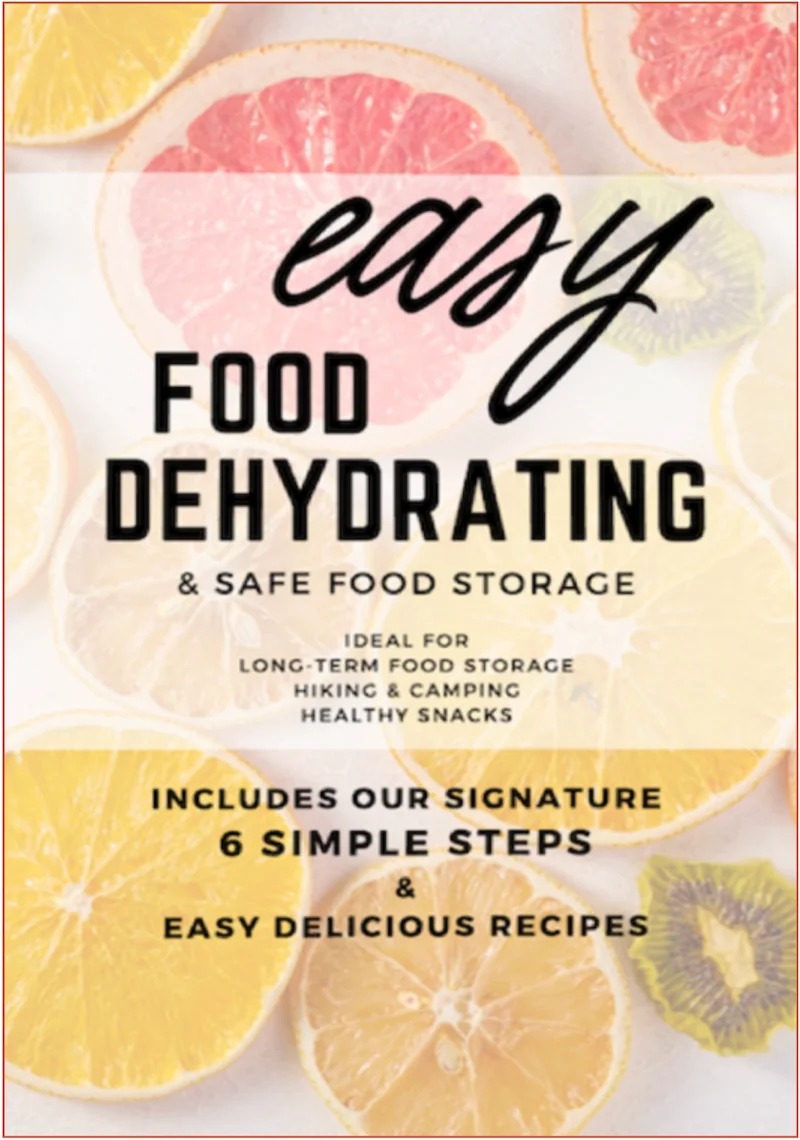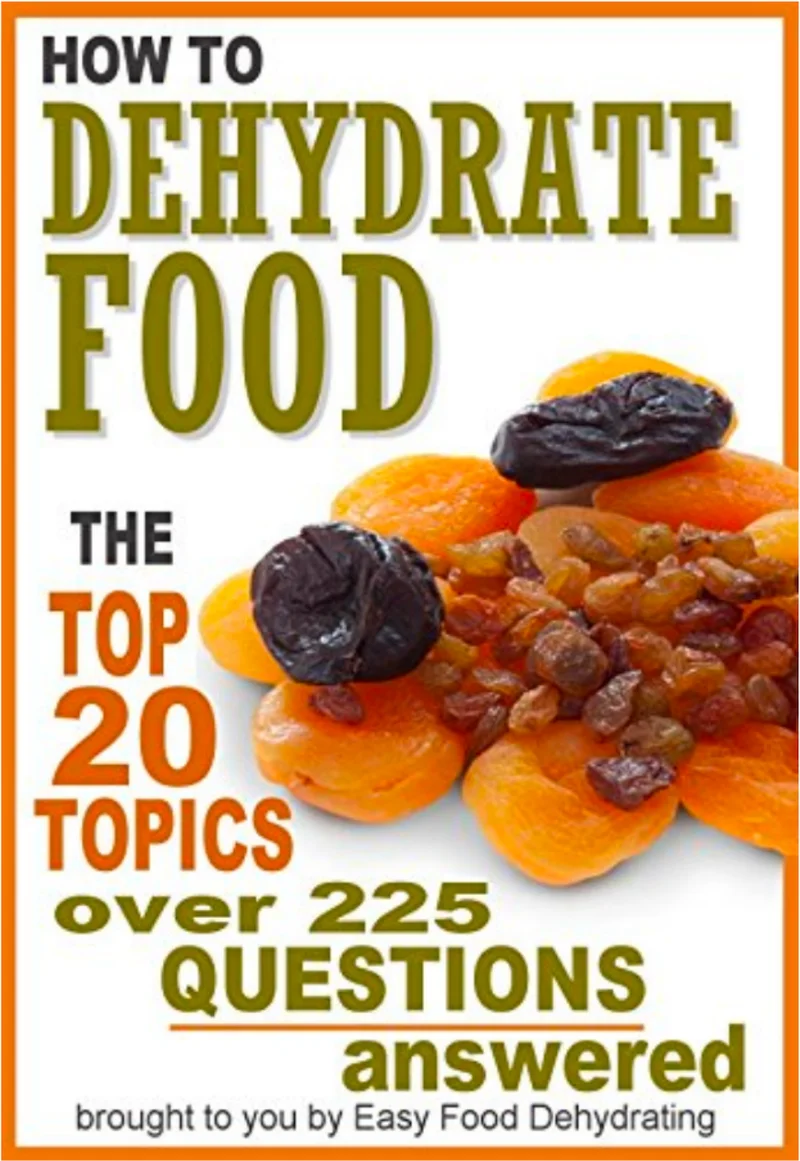What We Mean by “Dehydrate”
Here at Easy Food Dehydrating, “dehydrate” always means using an electric food dehydrator — the easy, reliable way to dry food at home.
- Home
- Articles On How To Dehydrate Food Safely
- Be Prepared for Hurricane Season
Be Prepared for Hurricane Season:
Food, Water, and Real Lessons Learned

Hurricane season has a way of sneaking up fast, and when it does, store shelves empty in hours. If you live in a storm-prone region like Florida, being prepared for hurricane season before the first warning is issued isn’t optional - it’s survival.
✅ Quick Answer: How can you be prepared for hurricane season?
To prepare for hurricane season, stock at least one gallon of water per person per day, keep shelf-stable or dehydrated foods on hand, secure shutters or plywood, and have backup power, medical supplies, and emergency contacts ready well before storm warnings.
The good news? With a little planning, you can stockpile safe water, prep nourishing dehydrated food, and safeguard your home long before the winds pick up. That way, you’ll face the storm with confidence instead of panic.
The peak occurs September 10th, but don't be fooled. As the season literally cools down, there is far more activity in October than, say, early June, or July.
Hard Lessons from Past Hurricanes (So You Don’t Repeat Them)
It is so sad to see my dad's workshop completely demolished by high winds. After the storm, Dad did admit that if he'd had time to install the roll-up doors, the workshop would have had a better chance of surviving the wind gusts.
With two open doorways, the wind rushed in through the building and lifted off the roof. We thought that two doorways would have been OK and act as a passageway for the wind. Boy, were we wrong.
We spent days clearing up. It was amazing how both lawnmowers survived, as did the hidden old Mercedes!
It was a very humbling experience and one I will never forget.
The Real Consequences of Skipping Hurricane Prep
Driving around the neighborhood and hearing noisy gasoline-powered generators running, you know a hurricane has been through and power's not back on.
But even having one light (and keeping your refrigerator on) is worth the noise.
Hurricane Survival Kit: Food, Water & Must-Have Gear
As an Amazon Associate, I earn commission from qualifying purchases. The price you pay does not increase. Read disclosure here.
How Much Water Should You Really Store?
WATER: Start buying an
extra gallon or two of water each week when you shop. This way, the expense
won't be 'all at once' when the hurricane strikes and you'll be hurricane-ready! Plus, it's easier to carry one (or two) water bottles at a time and you won't feel and look like a hoarder. :-)
As an Amazon Associate, I earn commission from qualifying purchases. The price you pay does not increase. Read disclosure here.
Stay Bright When the Power Goes Out
As an Amazon Associate, I earn commission from qualifying purchases. The price you pay does not increase. Read disclosure here.
Dehydrated Foods That Last Through Any Storm
FOOD: Get cracking and get some fresh produce dehydrated now.
Follow my six steps and store it safely so you'll be prepared with plenty of dehydrated food on hand. Our dehydrated food is vacuum-sealed in air-tight and water-tight bags and keeps out rain water too!
We had our 'wake-up' call in 2004 after I'd been in Florida 24 years without seeing any hurricanes personally. We do not take the hurricane season lightly anymore.
As an Amazon Associate, I earn commission from qualifying purchases. The price you pay does not increase. Read disclosure here.
How Lowe’s (and Neighbors) Pulled Together Before the Storm
Well, we weren't really hurricane-ready. It doesn't seem all that long ago that Dad and I popped down to Lowe's of Vero Beach, Florida, in his truck, and we were lining up... along with 30 or so other like-minded people. All of whom had flatbeds in tow, with sheets of plywood standing on edge.
It was a feeling of camaraderie. No one was panicking, no pushing and shoving to get to the front of the line.
We were all there for the same reason—to protect our homes and families and to be prepared for Hurricane Frances (and Jeanne, as it turned out, a few weeks later).
Check out our photos of what remained after the twin hurricanes.
Kudos definitely go to Lowe's for being so organized—and this was at 7 a.m. in the morning!
Evolving Hurricane Prep: What We’ve Changed Over the Years
September 12, 2013:
I'd
like to add a few words here as it's been almost a year now since
Hurricane Sandy—the deadliest and most destructive hurricane of the
2012 season and won't soon be forgotten either—and my heart goes out
to the survivors who are no doubt still trying to get their lives back to
some semblance of normalcy.
Today the "weather out the window" is thundery and pouring down with rain—ah well, that's what you get for living in the (almost) tropics...
I'm keeping my fingers and toes crossed that this year we'll be blessed with no hurricane damage at all to the beautiful shorelines of the United States of America.
May 22, 2018:
Another update: We moved house and had to rent for a short while—but it was our first experience with real metal shutters! What an absolute JOY to put up compared to the horrible sheets of plywood.
I put up the shutters for the whole rental house in about an hour - on my own - compared to a six-hour plywood slog with help from hubby.
Late September, 2019:
Another update: We moved house again from the rental and the owners had left us their metal shutters (as you do). What an easy job to put up metal shutters. I wish I had a few panels that were 'see-through' though. I think those kinds of panels are probably made of fiberglass. I'll look into that!
June, 2022:
Another update and no shocker: We moved house again (been in our latest home for over a year now) and we installed fancy 'Bahama-style' shutters.
Not only are they nice to look at, they function well, and are easy to close when needed. No more lugging around metal shutters.
One caveat: they do tend to diminish natural light inside the house (no surprise) as they're 'installed' for year-round, no-tote hurricane protection.
October, 2024:
Yet another disastrous hit, hurricane wise to folks in North Carolina, Georgia, and Florida. Having them suffer through Helene and then have Milton add to the injury, it really does open your eyes to the fact we need to be better prepared.
Like I've said many times, when we are prepared, we're in a far better position to assist our neighbors.
Why Acting Early Beats Last-Minute Hurricane Panic
Thanks for visiting "Be prepared for hurricane season." I know we all do the best we can.
The time is now to get those plastic water bottles billed (I store mine in my Florida room so if they leak, the water won't be inside the main part of the home) and get some food stashed away.
Smart Hurricane Prep FAQs You’ll Be Glad You Read
When should I start preparing for hurricane season?
When should I start preparing for hurricane season?
Start as early as spring by gradually building your supplies. Stock water, dehydrated or canned foods, batteries, and test your shutters. Early prep means avoiding empty shelves when a storm watch is issued.
What foods store best for hurricane prep?
What foods store best for hurricane prep?
Dehydrated fruits, vegetables, jerky, vacuum-sealed grains, and canned beans or soups last months to years. Choose items that need little or no cooking if power is out.
How much water should I store per person?
How much water should I store per person?
The Red Cross recommends one gallon per person per day for at least 3–7 days. Store extra if you have pets, children, or live in a hotter climate.
Are metal or Bahama shutters better than plywood?
Are metal or Bahama shutters better than plywood?
Yes. While plywood is cheap, it’s heavy and slow to install. Metal and Bahama shutters are faster, reusable, and provide stronger protection from flying debris. And not only that, they look better!
What’s one overlooked supply most people forget?
What’s one overlooked supply most people forget?
A battery-powered or crank NOAA weather radio. When cell towers are down, it may be your only lifeline for updates and evacuation alerts.
Whether it’s your first hurricane season or your fifteenth, being ready brings peace of mind—and gives you the chance to help your neighbors, too. Start small: store a few extra gallons of water, dehydrate a batch of veggies, or tuck away some jerky.
To make food prep easier, grab your free 5 Dried Food Recipes You'll Actually Love PDF (below). These simple recipes—like carrot soup, minestrone, split pea soup, spicy beef jerky, and banana cinnamon rolls—are storm-ready meals you’ll be glad to have on hand when the lights go out.
Get 5 Dried Food Recipes You'll Actually Love
Here's where you can get your copy of our all new
5 Dried Food Recipes (That Actually Taste Great)
They're my all-time favorite easy dried food meals!
Get it here right now.
For Free!
Before You Go...
If you enjoyed this page, tap the ❤️ in the lower right-hand corner.
It saves this page to your Grow bookmarks so you can find it again later.
You’ll also see quick share buttons to copy the link, post to Facebook,
or save it straight to Pinterest.

























